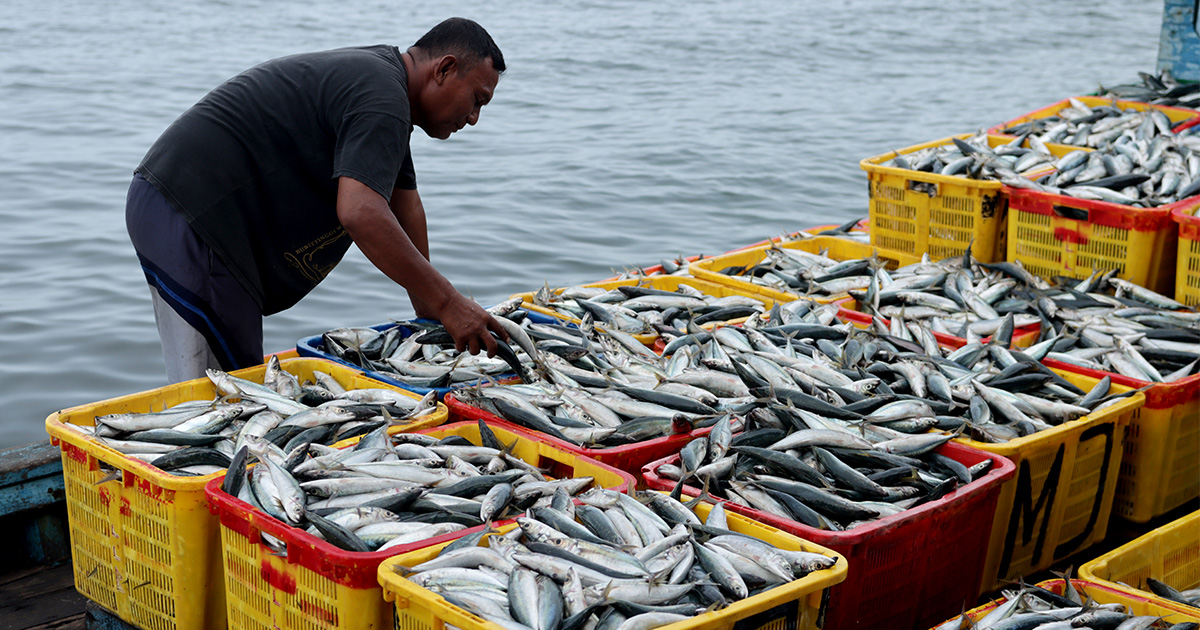The world’s oceans, teeming with diverse marine life, are facing a critical threat: overfishing. This type of not-sustainable fishing does not allow fish populations to grow faster than they are depleted, which causes ecological, economic, and social consequences. Overfishing not only endangers marine species but also the lives of millions who depend on fishing for both food and income. Here, we examine the dilemma of overfishing and provide solutions to the problem.
Understanding Overfishing
Overfishing takes place when the fish catch the fish at a speed that exceeds their capacity to reproduce. Such imbalance may be brought about by different factors such as modern fishing technologies, high global demand for seafood, and poor fisheries management. The effects of overfishing go beyond the single species as the whole marine ecosystem is affected.
The Consequences of Overfishing
Decline in Fish Populations
Overfishing has a drastic impact on the fish population. The population of Atlantic cod, bluefin tuna, and some shark species have declined remarkably because of overfishing. Not only the desired species suffers the consequences of the decline but also the food chain has a ripple effect on the predators and prey.
Loss of Biodiversity
A diverse range of marine species is critical for the sustainability of marine ecosystems. Overfishing results in loss of biodiversity, making the ecosystems more sensitive to environmental fluctuations and less resistant to perturbations. Species loss can destroy ecological balance by increasing the abundance of algae and other organisms which may cause additional degradation of marine environment.
Economic and Social Impact
Fishing is an essential source of food and income for many millions of people around the world, particularly in coastal areas. Over fishing undermines the sustainability of these economic activities, thus creating food insecurity and poverty. With fish stocks depletion, fishing communities confront more competitors and have lower catches and higher costs, leading to deeper poverty and social injustice.
Ecological Imbalance
The removal of top predators from marine ecosystems can cause significant ecological imbalances. For example, the overfishing of sharks, which are apex predators, can lead to an increase in the populations of their prey, such as rays and smaller fish. This, in turn, can result in the overgrazing of seagrass beds and coral reefs, further degrading the marine environment.
Strategies to Combat Overfishing
Implementing Sustainable Fisheries Management
Sustainable fisheries management is one of the main factors of tackling overfishing. This can be done through the establishment and implementation of catch limits that are based on the scientific analysis of fish populations. The sustainable management practices as well include defending critical habitats, controlling types of fishing gear to minimize bycatch, and that fishing activities should not exceed the reproductive capacity of fish stocks.
Marine Protected Areas (MPAs)
A Marine Protected Area is a specified place where human activity is prohibited in order to protect marine biodiversity and ecosystems. MPAs can contribute to the replenishment of fish populations by creating optimal conditions for fish breeding and growth. Scientifically supervised MPAs have been known to improve the marine population, which in turn, results in the benefits of the neighboring fishing areas through spillover effect.
Promoting Sustainable Seafood
Consumers have the power to combat overfishing by selecting sustainable fishery products. Organizations such as the Marine Stewardship Council (MSC) can certify fisheries that meet sustainability requirements. Through the purchase of MSC-certified products or using sustainable seafood guides, consumers can contribute to the success of responsible fisheries and decrease the demand for overharvested species.
Reducing Bycatch
Catches of non-target species, commonly known as by-catch, are considerable in many fisheries. Innovative fishing equipment and methods can help to minimize the amount of bycatch. For instance, turtle excluder devices (TEDs) allow turtles to escape from nets used for shrimp fishing, and circle hooks are less likely to be swallowed by non-target species. Introducing and monitoring the application of bycatch reduction measures is one of the most effective ways to minimize fishing influence on marine ecosystems.
International Cooperation and Policy
Overfishing is a worldwide problem requiring international collaboration. Some fish stocks migrate among the countries, making cooperation in management a necessity. The international agreements and organizations like the United Nations Fish Stocks Agreement and regional fisheries management organizations (RFMOs) have a very important role in the coordination of sustainable fisheries management and in the fight against IUU fishing.
Conclusion
The matter of overfishing is complex and overwhelming, but not irredeemable. Through sustainable fisheries management, the creation of Marine Protected Areas, consumer awareness, bycatch reduction, and international cooperation, we can safeguard the oceans and secure the longevity of marine fisheries. The conservation of fisheries in our oceans is only possible through the joint actions of governments, businesses, scientists and people. We can accomplish this by making informed choices and supporting practices that are sustainable and hence, contribute to the wellbeing and resilience of marine ecosystems for generations to come.
Visit the Environmental Consortium for more information on sustainable living and environmental conservation. Together, we can strive towards a “paradise” where our oceans flourish and their resources are safeguarded for everyone.
